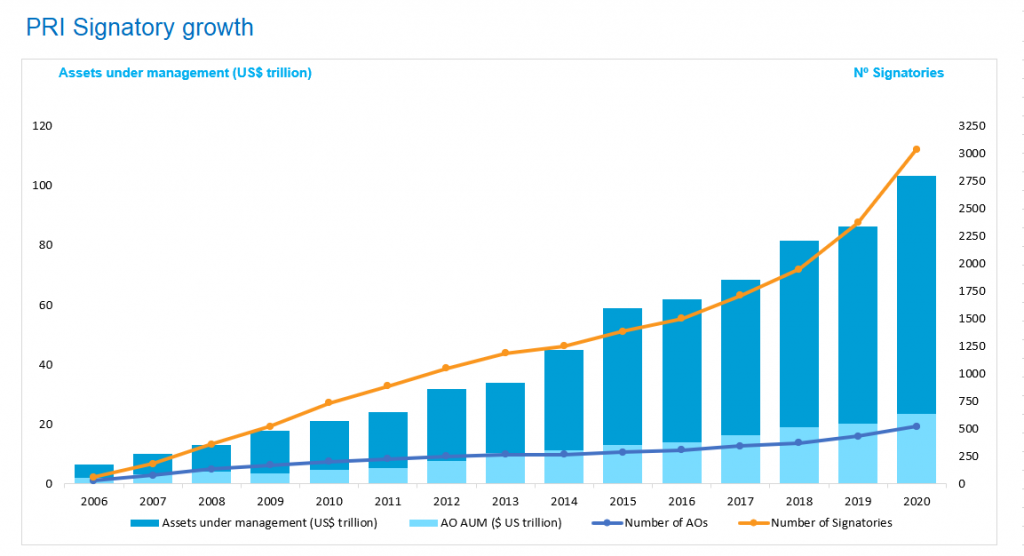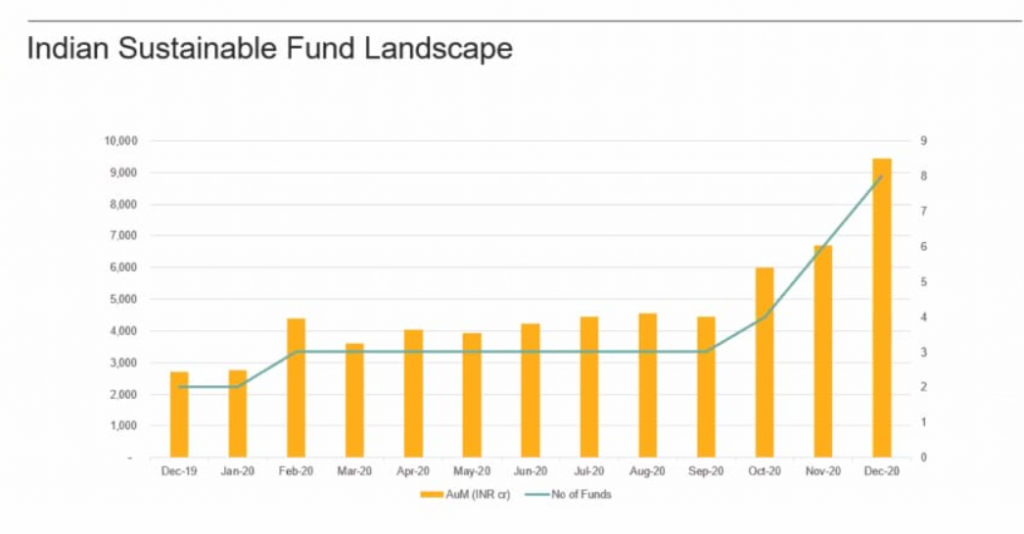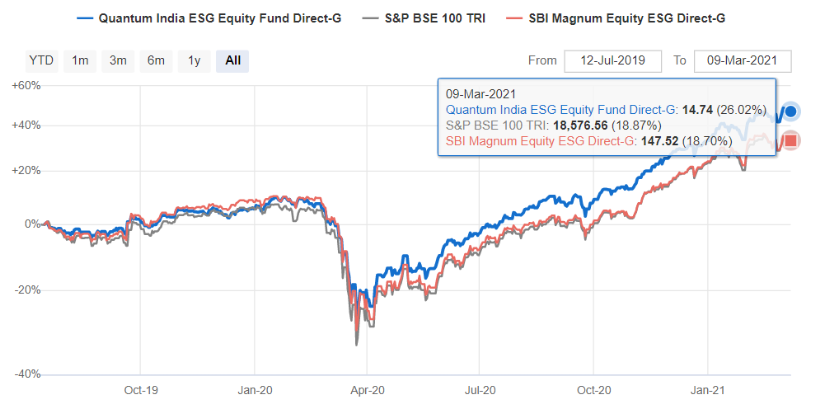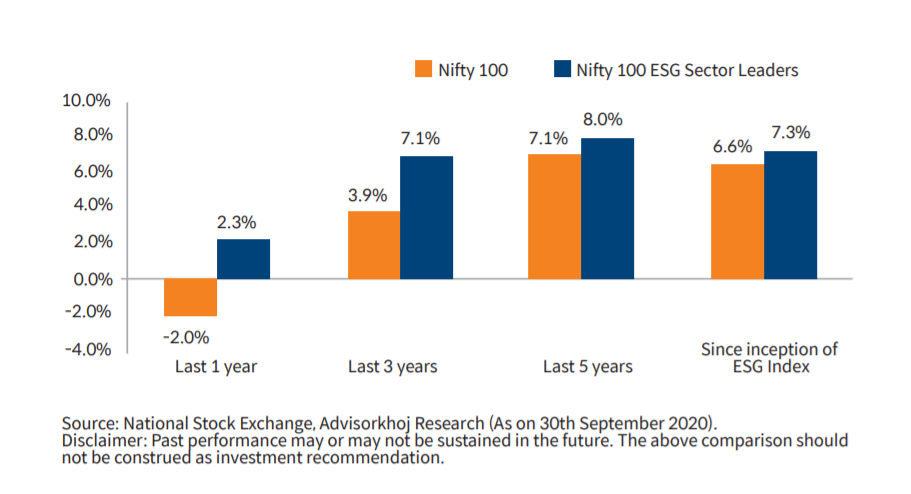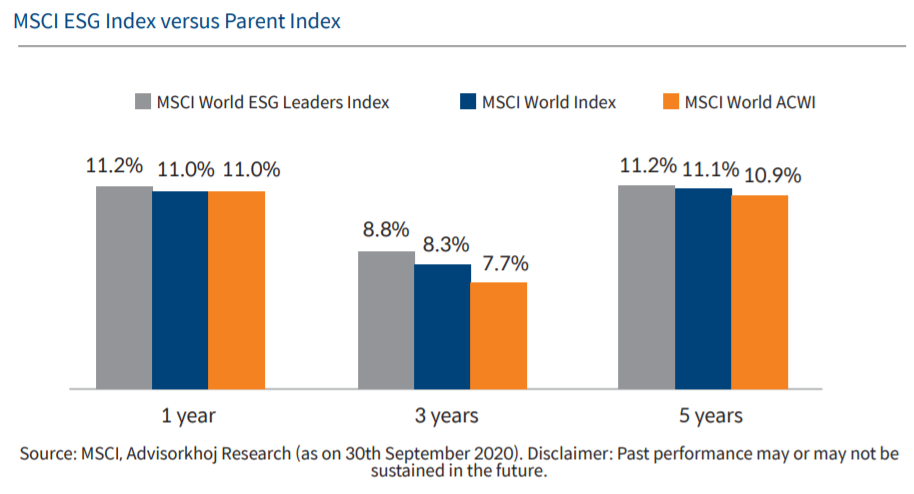Estimated reading time: 10 minutes
Not only financial returns, the focus of investors, especially Millennials (in the past few years) is gradually shifting towards sustainable returns i.e. in inclination with Environmental and Social values. Not only investors but companies are also giving more and more importance to the Environmental and Social issues, along with earning profits.
Seeing this trend, a lot of Fund Houses have recently launched NFOs of ESG themed funds. In the Year 2020 alone, we have seen seven such NFOs of ESG Mutual Funds in India. We may see more of such fund launches in 2021 and years to come.
Let’s dig a little deeper and understand what ESG investing is all about and why has it become the new fad in India as well. and Is it really a Fad or going to last Long?
Table of contents- In this article, we will discuss:
What are ESG Funds?
ESG Funds are those which invest in companies that are conscious towards Environment, Socially Responsible, and maintain a high standard of Corporate Governance. Apart from looking at the financial performances, the fund manager also evaluates companies based on these factors, before making them a part of the investment portfolio.
Fund managers follow different strategies or approaches in applying the ESG screen in constructing the fund portfolio.
Exclusionary: Some ESG Funds follow the exclusionary approach, wherein they simply exclude the companies involved in a certain business, like- tobacco, alcohol, gambling, fossil fuels, weapons, etc.
Inclusionary: In this strategy, they invest in companies with high ESG scores in relation to their peers either by applying ‘in-house’ developed ESG factors or taking data from third-party index providers.
Thematic: Another strategy would be funds based on a particular environmental or social theme or certain predefined goals. For instance- Green Technology, Clean Energy, Organic/Sustainable Agriculture, etc.
The Global Scenario
The framework for ESG investing originated in 2006 when the UN Principles for Responsible Investment (PRI) was launched. PRI is one of the largest networks of institutional investors across the globe, becoming the first proponent of Sustainable Investing. Trends show that the Assets have shown tremendous growth every year.
As issues like- Climate change, the rights of every section of society, and clean and transparent governance practices are gaining importance worldwide, ESG assets have seen a huge surge in inflows. Covid19 crisis had heated up the concern even further, particularly on the social and environmental front.
As of now, almost a third of the total assets in the US are managed under the ESG criteria, a total of 17.1 trillion USD, a 42% increase since 2018, and half of the inflows into European Funds inflow in 2020 went into ESG funds.
According to this mint report, ESG Funds across the Globe had shown a record inflow of USD 168.73 Billion in the year 2020.
ESG investing theme is gaining much currency across geographies especially in the developed economies as Institutional investors like- pension funds and endowment funds, and sovereign wealth funds having huge chunks favor this investment style.
ESG Landscape in India
ESG theme is evolving in India in the last few years. Regulators are also taking a number of steps to lay the ground for ESG Investing.
Be it is mandating corporates having a certain turnover and profitability to spend 2% of their earnings towards CSR Activities in 2014 to most recently, in 2020, SEBI making it mandatory for top 1000 listed companies to Publish a Business Responsibility Report along with the Annual Report, which was previously restricted to top 100 companies in 2012 and then extended to top 500 companies in 2015.
A number of sustainability Indices are also launched by both BSE and NSE. The S&P BSE 100 ESG Index can be used to track the sustainability Investment criteria of top 100 companies on the BSE and the Nifty 100 ESG Index reflects the performance of Nifty 100 companies based on ESG scores. It currently has 90 constituent companies.
NSE also has an advanced index- Nifty 100 Enhanced ESG Index. Companies having more than 50% ESG score can become part of this index. It has 80 constituent companies.
Recently, a new Index- Nifty 100 ESG Sector Leaders was launched by NSE in June 2020, which tracks the performance of select large-cap companies within each sector of NIFTY 100 (top 100 companies on NSE). Companies managing the ESG risk well and are not involved in any major controversies are given a high ESG score. Currently it has 51 constituents representing almost every sector, rebalancing is done semi-annually.
Many third party research firms such as- Morningstar, MSCI, Sustainalytics etc. also have their own ESG indices.
ESG Funds in India: Evolving and Growing
Globally, there are more than 3000 ESG Mutual Funds available with over 1 trillion in AUM, it is a concept still new in India. We have limited options available till now when it comes to ESG investing.
The first ESG fund was launched or I would say converted by SBI in May 2018, when the AMC changed the erstwhile, SBI Magnum Equity Fund to SBI Magnum ESG Equity Fund. Quantum AMC came up with the NFO of it’s ESG Fund in July 2019.
In 2020 alone, as the hype around ESG is growing in India due to Covid, several AMCs came up with the launch of ESG-themed funds- Axis, Mirae, Quant, Kotak, ICICI, Aditya Birla Sun Life. Invesco would be the next in line, the first ESG NFO in 2021.
Amongst these, SBI and Kotak Mahindra Mutual Fund are also Signatories to the UN PRI.
Data from Morningstar shows that the flows in ESG Funds in India has reached almost 10,000 crores in the month of December 2020.
Performance of ESG Mutual Funds in India
Performance track record would be an important criterion to catch the eyeballs of investors in India. Most of the ESG funds are launched recently and do not have much performance track record. We have to wait for some years to evaluate and compare the performances of funds.
Currently, only two funds have a track record of more than 2 years. SBI Magnum ESG Equity Fund and Quantum India ESG Equity Fund. The point to point performance comparison of both the funds (Direct Plans) from 12th July 2019 to 9th March 2021 vis-a-vis the Benchmark, S&P BSE 100 is shown in the graph below:
(Also Read: How Mutual Fund Benchmarks helps you select the Right Fund?)
As clearly evident from the graph that the numbers seem a little exaggerated due to the less time frame. Please be informed that two years is not the idle horizon to compare performances of Equity funds.
But yes, ESG indices have marginally outperformed the parent index. As on October 30, 2020, the Nifty 100 ESG Index has delivered a 10.80% return over the five-year period vis-a-vis Nifty with an 8.99% return, both CAGR.
The Nifty 100 ESG sector leaders index has historical data from 2014. The graph below shows the performance comparison of Nifty and Nifty ESG sector leaders over different time periods, as on 30th September 2020:
Although fund performance might vary due to the different methodologies adopted by different fund houses and funds bear an expense ratio as well. (Read more about mutual fund expense ratio in this article)
Globally too, ESG indices have outperformed the parent index over different time periods. The graph below shows the performance comparison of the MSCI World Index and MSCI emerging markets index with the MSCI ESG leaders index as on 30th September 2020:
Why is ESG Investing Strategy gaining popularity?
Companies having high ESG scores are expected to deliver long term sustainable existence and have high growth potential.
Good corporate governance practices would ensure that the company is on the right side of the law in doing business and is transparent and ethical in its dealings with all the stakeholders.
Social Responsibility enhances the Goodwill of the company. Companies that give back to society and work for the welfare of every section of society are always loved by investors.
Companies sensitive to environmental issues like- Climate Change, Carbon Emissions, Green Technology, Pollution, etc. are less likely to face regulatory issues and Government interruptions.
Following ESG principles also help companies build strong employee and customer relationships, reduce unnecessary costs and improve the productivity of employees and in turn profits.
In short, ESG strategy can in a way be a risk-management tool used by fund managers to separate out winners from losers. Investment decisions taken keeping in mind ESG, would not only deliver sustainable returns but gauge less volatility compared to peers as well.
(Also Read: Types of Risks in Investments and how to manage them?)
The other side
However, there is another side too. Despite many third-party ESG research firms, uniform availability of data around ESG factors is a big challenge. A lot of companies might not disclose much of the ESG aspects, especially in the Indian context.
The problem is the subjective nature due to a lot of qualitative aspects involved. It is not necessary that companies good on ESG norms are 100% ethical.
A manufacturing company committing to be carbon neutral in the next 20 years might give it a high score on the Environment front but might not be providing women equal opportunities or face data privacy issues which may cause a lag in the S & G aspect.
Also, ESG factors may not be the sole reason contributing to the outperformance of ESG indices and one might take the exposure of almost all ESG stocks through a diversified Multi-cap (now Flexi-Cap fund) or even through a large-cap or an Index fund for that matter. It means ESG investing in India doesn’t offer anything unique if we see it in today’s scenario.
(Also Read: 5 Recent Mutual Fund changes you must know)
This Value Research article explains these issues in detail.
Can ESG Funds in India become mainstream?
As the ESG phenomenon is slowly getting traction in India as well. It’s high time businesses would have to think through these factors- Sensitivity to the Environment, Societal welfare, and clean way of operating. Proper ESG disclosures by companies are also equally important.
It may appear optional today but companies not taking these aspects seriously may have bleaker prospects going forward as things start to progress. Earning profits and serving humanity should go hand-in-hand.
FPI investors take a very close look at ESG scores, before making investments in any country. So, if India wants to become an FPI Investment hub, ESG should be taken seriously.
But it is also true that the availability of quality data on ESG factors is a big challenge that needs to be addressed so that the investment decision-making process improves.
As far as ESG Funds are concerned, as of now, we would have to wait and see how things pan out. But as the performance track record builds up and FPI inflows start increasing and consistent alpha generation happens, retail investors may also move towards them.
Today, ESG Funds in India come under the thematic or Sector funds category. But going forward, as things improve slowly and gradually, the ESG theme has the potential of becoming the new mainstream way of investing.
You might also like: Smart Beta Funds- Is this the new age way of Investing?
This Article on ESG funds in India written by Mr. Varun Baid, CFPCM



